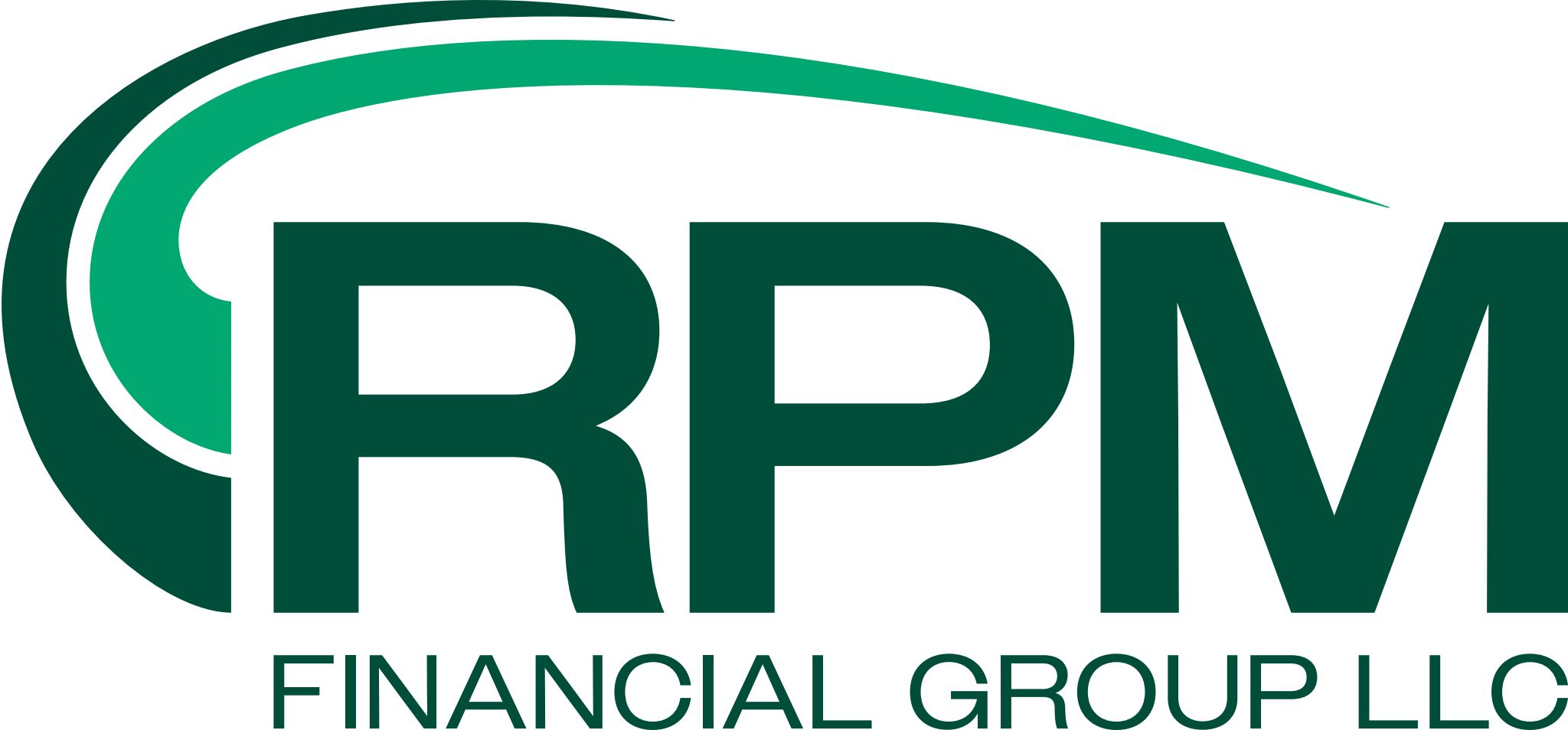
Federal government employees have unique financial planning needs. A financial advisor serving federal employees can help you achieve your goals throughout life, from education funding for your children to saving enough money to enjoy a comfortable retirement.
There are a variety of federal government jobs that come with many perks. Whether you’re a postal mail carrier, program manager, mathematician, administrative judge, securities compliance officer, or any other type of government employee, there’s a good chance you love what you do.
Not only does your work enhance the lives of people in the U.S. and other countries, but you’re also likely eligible for professional development and advancement opportunities as well as stellar benefits that are unheard of in the private sector.
As a federal government employee, it’s important that you prioritize financial planning. By doing so, you can meet your short and long-term goals while leading a comfortable lifestyle you’re proud to call your own. Hiring a financial advisor who specializes in working with federal employees can be a smart move to help you enjoy life more with less money stress.
How To Find The Best Financial Advisors for Federal Employees
While you may find a great financial advisor to work with through the referral of an acquaintance or whose office you drive by on your daily commute, it’s important to consider several factors to improve your odds of hiring the best financial advisor for your individual needs.
As a federal government employee, you may decide the best financial advisor for you is one who specializes in understanding the unique financial planning challenges and opportunities common in the public sector. These specialist financial advisors may hold credentials that demonstrate their expertise along with considerable experience working with federal government employees that could benefit your own financial planning needs.
Because many financial advisors can work with you online, you’re not limited to hiring a financial advisor in your neighborhood when the best financial advisor for you may live hundreds of miles away.
In other words, whether you choose to hire a financial advisor who lives near or far, it may be most important to hire a financial advisor who truly understands your individual needs based on their education, experience, and commitment to helping people just like you.
You’ll find a growing number of financial advisors on Wealthtender who serve public sector professionals, including advisors specializing in working primarily with federal government employees.
Get to Know Financial Advisors for Federal Employees
📍 Click on a pin in the map view below for a preview of financial advisors who specialize in serving federal employees and can help you reach your money goals with a personalized plan. Or choose the grid view to search our directory of financial advisors with additional filtering options.
📍Double-click or pinch pins to view more.
How Much Does a Financial Advisor Cost?
➡️ How Much Does a Financial Advisor Cost? Read the Article
Challenges of Financial Planning for Federal Employees
While you’re a pro at your job in the public sector, you may be unsure of how to plan for your financial future. You might not have time to gain the knowledge or training required to learn the best ways to put your money to work for you. In addition, your career in government has its own set of unique opportunities and challenges to consider when you design a financial plan.
Fortunately, we’ve created this guide to put you on the right path to planning your financial future. And with an increasing number of financial advisors who specialize in working with government employees, you’ll be in good hands to tackle the unique financial planning challenges that come with a government career.
Our guide will open your eyes to important financial topics and steer you toward the right plan for your particular situation. If you pair it with the professional advice of a financial advisor, you’re sure to thrive with your finances.
Financial Planning for Federal Government Employees
There are a number of topics to consider and questions you’ll have when you’re planning your finances as a federal government employee. Here’s a brief overview:
Living Well on a Federal Government Employee Salary
Many government salaries are comparable to those in the private sector. The caveat, however, is that there is a pay ceiling for federal positions. This means you may end up with a lower salary than you’d earn in the private sector. The top government jobs come with annual salaries that cap out between $117,000 to $177,000.
To live a good life on a federal government salary, you’ll need to think about what matters most to you. Do you value travel? Early retirement? Paying for college? Once you establish your needs and wants, you’ll want to design an appropriate budget. You won’t be able to spend frivolously if you want to meet your financial goals as a government employee.
Here are a few questions a financial advisor can help you answer to make the most of your salary as a government professional.
- How much should I have saved today in order to retire comfortably at my desired retirement age?
- If I don’t have enough saved today, what steps can I take to get back on track?
- What financial planning insights have you gained working with other federal government professionals like me?
Repaying Your Student Loans
While not all federal government jobs require education beyond a high school diploma, many employees have taken higher education coursework and graduated from college or hold an advanced degree. If you’ve earned a college or graduate degree and work for the federal government, rest assured you may be eligible for student loan forgiveness.
The Department of Education’s Public Service Loan Forgiveness of PSLF program allows public service employees, including military personnel and federal employees like you, to qualify for federal student loan payment reduction. In addition, your debt may be forgiven after you make 120 payments.
Unfortunately, private student loans do not apply to this program, so if you have them, you’re responsible for repaying them in full. A financial advisor can help you determine if you may benefit from the PSLF program. You can also work with your financial advisor to establish a student loan repayment plan for your debt that isn’t forgiven.
Making the Most out of Your Federal Government Employee Benefits
While you may not get rich as a federal government employee, the benefits you’ll earn are sure to make your life easier. Your benefits package may include health insurance, a flexible spending account, basic benefit plan, thrift savings plan, and/or life insurance. You may also have access to an employee assistance program as well as child and dependent care.
You’ll find that many of these benefits make up for a salary lower than what you might earn in a similar private sector position. That’s why it’s important to make yourself familiar with your benefits and figure out how you can use them wisely. Examples of questions a financial advisor will help you answer about your benefits include:
- How much of my income should I invest in each of the retirement and savings plans available to me to maximize my benefits?
- How should I allocate the investments in my federal retirement and savings plans?
- Which federal government benefits could save me money on my monthly expenses?
Buying a House as a Federal Government Professional
Buying a house as a federal government professional is usually a seamless process since you have a steady paycheck with W2 forms and pay stubs to prove it. However, you may still want to work with a financial advisor to determine the answers to questions like:
- What type of mortgage should I take out?
- How much house can I afford?
- Where can I land the best interest rates?
- Am I eligible for any home buying programs?
If you work for the government, you may be eligible for the FHA Good Neighbor Next Door Loan. This program comes with perks like lenient credit requirements, down payment assistance, and reduced closing costs.
There are other similar programs for government employees that are certainly worth considering. In addition to answering the questions above, a financial advisor can help you discover if you qualify for a special home loan program.
Saving for Retirement as a Federal Government Professional
As a federal government professional, you likely have access to several unique investment and retirement plans as part of the Federal Employees Retirement System (FERS). The Thrift Savings Plan or TSP, for example, offers very low fees and allows you to diversify with five index funds and a target date fund. It comes with a Roth option as well.
Regardless of whether or not you contribute to a TSP, the government will automatically match one percent of your salary. If you do contribute, they may match up to five percent of your salary each pay period. This can do wonders for your retirement savings.
When you partner with a financial advisor, you’ll work together to design a strategy to help you retire when and how you’d like. You’ll discuss questions such as:
- How much do I need to save to meet my preferred retirement lifestyle?
- Should I contribute to a TSP or another retirement plan?
- What is the best long-term investment strategy for me?

Are You Making the Most of your FERS Benefits?
“Unfortunately, many federal employees do not fully understand all of the benefits they receive as federal employees. Most employees make the mistake of thinking that FERS (Federal Employee Retirement System) is just a pension. However, FERS includes many more benefits.Federal employees can keep their health insurance in retirement and continue paying only the employee portion of the premium. This benefit alone can be worth $500,000.Beyond health insurance, FERS includes death and disability benefits as well as a supplemental pension for employees until they reach social security age.It is important that federal employees understand these benefits thoroughly so that they can make smart decisions about their finances and retirement.”– Sam at GovWorker
(As a federal employee since 18, I blog about my experiences navigating the federal system and my personal finance journey.)
Expenses and Deductions: Keep More of Your Income
Even if you work for the government, you’re responsible for taxes. Just like private sector employees, you must withhold and pay federal income tax, Social Security, and Medicare taxes. Therefore, you’ll need to be aware of any deductions that apply to you as well as whether you should take the standard deduction or itemize. Unless you keep up with the ever-evolving tax law, you’ll benefit from the help of a financial advisor to help you answer questions like:
- Does it make sense to take the standard deduction or itemize?
- Which deductions am I eligible for as a federal government employee?
- How can I save as much money as possible on taxes?
Your Insurance Needs as a Federal Government Professional
When it comes to insurance, you’ll have access to a wide selection of health insurance plans. Hundreds of plans will be available to you, so you’re sure to find one that is ideal for your unique budget and healthcare needs.
Although each plan has its own set of benefits, no plan requires a medical exam or waiting period to enroll. Also, there are no age or condition-related restrictions. In addition to excellent health insurance, you may enjoy the Federal Employees’ Group Life Insurance or FEGLI program.
The FEGLI program is known as the largest group life insurance program that covers millions of active and retired federal employees. Through this program, you’ll be enrolled in a life insurance plan automatically unless you opt-out. A financial advisor can help you determine if there are any other insurance products you’ll want to invest in.
🙋♀️ Have Questions About Financial Planning for Federal Government Employees?
Financial Planning is a Necessity
Even if you take advantage of all the great benefits you’re eligible for as a federal government employee, there’s no guarantee you’ll succeed financially. Therefore, financial planning is essential. It can help you make the most out of your benefits package and monetary compensation so you can lead the life you love.
It’s wise to partner with a financial advisor to come up with a solid financial plan that works well for your particular situation. A financial advisor can also help motivate you to stay on course and focus on your financial goals.
Enjoy a Secure Financial Future
There is a strong correlation between financial planning and financial security. To ensure you have enough money to live your ideal lifestyle and save for the future you desire, a financial plan must be in place. It can change the way you think about and spend your money, leading to a happier, more fulfilling life for you and your family.
Smart Tips for Finding a Financial Advisor for Federal Employees
Before hiring a financial advisor, here are a few quick tips to help you find the best advisor for you.
1. Decide Which Services You Need
Before hiring an advisor, determine what services you need from them. Whether it’s full-service investment management or a plan focused on a specific area of your finances, put together a list of what you’d like help with before contacting an advisor.
Though most people use a financial planner simply to invest for retirement, this is only a small part of what many advisors offer. Here’s a quick rundown of potential services a financial advisor may offer you:
- Budgeting and money management
- Debt management
- Insurance planning
- Retirement planning
- Other investment planning
- Inheritance planning
- Estate planning
- Tax planning
As you can see, financial advisors can help you with your entire financial picture, not just investing. As you start to plan for life’s bigger milestones, you should consider finding a financial advisor that specializes in those areas.
Finding the right advisor can help you minimize risk, maximize gains and take advantage of tax breaks while investing for your future. They can also help you protect your assets with the right kinds of insurance and help you pass on your financial legacy with a proper estate plan.
2. Consider Your Budget and Payment Preferences
Once you have a list of services you would like, review the fee structures financial advisors offer. Finding a balance between the services you need and the cost of those services will help narrow down the field of advisors you may want to work with.
If you are looking for a full-service advisor to manage all of your investments, consider searching among fee-based financial advisors. If you want to manage your money yourself, consider the flat fee and monthly subscription advisors for ongoing support.
3. Interview Multiple Financial Advisors
Once you have chosen the services and fee structure you prefer, it’s time to contact a few advisors and interview them. Here are questions to ask financial advisors:
- What services do you provide?
- What are all the ways you get paid? (fee transparency)
- What is your investment strategy?
- How do you measure investment performance?
- How do we communicate about my plan?
Interview multiple advisors to get a feel for who you want to work with. A combination of fees, services, and customer service will help you determine the best fit for your financial advice.
4. Review Financial Advisor Credentials
Once you find an advisor (or two) you feel comfortable with, it’s always a good practice to check their credentials and the firm’s details. You can do this at the Investment Adviser Public Disclosure (IAPD) website.
You can check both the individual and the firm to view their background and experience details, as well as any disciplinary action taken against them or their firm.
As licensed financial professionals, there is oversight into how financial advisors conduct business, so running a quick (free) check on them is recommended.
For additional information about advisor credentials, read our article to learn the most popular designations held by financial advisors, as well as specialized credentials which may be important to consider if you have unique financial planning needs.
Federal Employee Financial Planning FAQs
What is the Federal Employees Retirement System (FERS)
Created by Congress in 1986, the Federal Employees Retirement System (FERS) is a retirement plan that provides benefits from three different sources: a Basic Benefit Plan, Social Security, and the Thrift Savings Plan (TSP). Two of the three parts of FERS (Social Security and the TSP) can go with you to your next job if you leave the Federal Government before retirement. The Basic Benefit and Social Security parts of FERS require you to pay your share each pay period. Your agency withholds the cost of the Basic Benefit and Social Security from your pay as payroll deductions. Your agency pays its part too. Then, after you retire, you receive annuity payments each month for the rest of your life.
The TSP part of FERS is an account that your agency automatically sets up for you. Each pay period, your agency deposits into your account an amount equal to 1% of the basic pay you earn for the pay period. You can also make your own contributions to your TSP account, and your agency will also make a matching contribution. These contributions are tax-deferred. The Thrift Savings Plan is administered by the Federal Retirement Thrift Investment Board.
For more information about TSP, see their website. See the SSA website for more information about the Social Security portion of your retirement benefit. And click here to learn more about the Federal Employees Retirement System from the US Office of Personnel Management.
Are there financial coaches who specialize in working with federal government employees?
Yes. While financial advisors are generally best suited to help federal government employees who need investment advice and guidance, many financial coaches have considerable experience working with public sector employees whose day-to-day budgeting and financial habits could use improvement.
Use the Wealthtender Financial Coach Directory to find the best financial coach or counselor for your individual needs.
About the Author

About the Author
Brian Thorp
Brian is CEO and founder of Wealthtender and Editor-in-Chief. He and his wife live in Austin, Texas. With over 25 years in the financial services industry, Brian is applying his experience and passion at Wealthtender to help more people enjoy life with less money stress. Learn More about Brian
Frequently Asked Questions About Hiring a Financial Advisor & Additional Resources
How do I know if I’m ready to hire a financial advisor?
You should strongly consider hiring a financial advisor if you have a significant amount of money available for saving or investing. This could occur after years of making annual contributions to a retirement plan like a 401(k) through your employer or suddenly if you receive a large inheritance or sell your house for a large profit.
But even if you don’t have a lot of money saved, many financial advisors and planners provide reasonable pricing options and valuable services you should consider, especially if you’re facing a significant life event. For example, if you’re starting a new job, getting married, starting a family, getting divorced, lost your job, starting or selling a business, or approaching retirement age, working with a trusted financial advisor or planner may prove worthwhile.
Before I hire a new financial advisor, should I fire my current advisor?
You don’t need to fire your current advisor before beginning your search for a new financial advisor. In fact, your new advisor can help coordinate the transition of your assets from your previous financial advisor.
Where can I read reviews about financial advisors written by their clients to help me decide if I should hire them?
After 60 years of regulatory prohibition of financial advisor reviews in the US, a rule issued by the Securities and Exchange Commission (SEC) became effective on May 4, 2021 that means both financial advisors and directory websites that help consumers search for a financial advisor can collect and display financial advisor reviews, an important factor worth considering when choosing who you’ll hire to manage your investments and life savings.
Wealthtender is the first independent advisor review platform designed to be fully compliant with the new SEC rule, and we look forward to helping you evaluate financial advisors based on reviews written by their clients.
I’m a financial advisor interested in being featured in this guide. How do I get started?
Thanks for your interest. We look forward to learning more about your practice and helping you attract your ideal clients where you may be a good fit based on their individual needs and circumstances. Please click here to learn how you can join local financial advisors featured on Wealthtender.

































